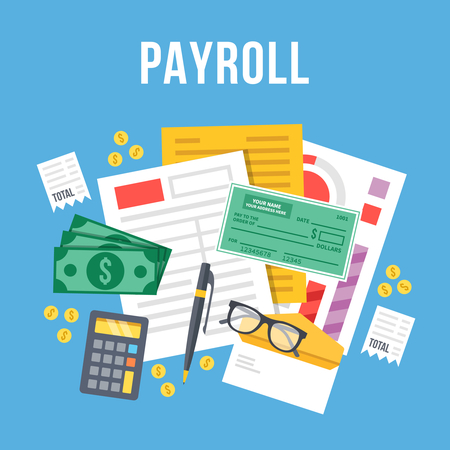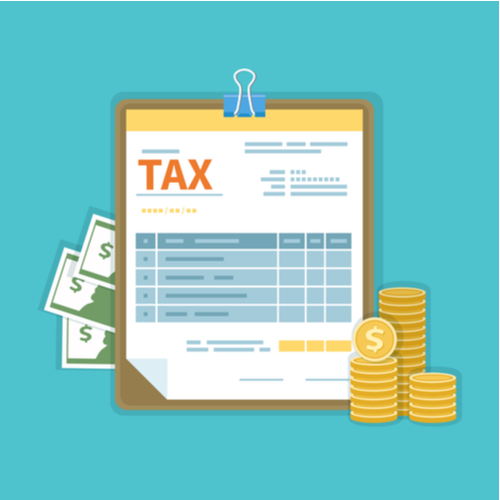Hiring specialist contractors can reduce SME costs

To thrive in the contemporary business ecosystem, SMEs need to optimise the use of resources and achieve maximum customer value.
Being lean in every business process gives SMEs the ability to compete and deliver outstanding value in an ever-changing economic environment. The term ‘lean’ was first used by MIT researchers to describe Toyota in the late 1980s on how they eliminated waste and inefficiency. Since then, every wise business owner – be it a CEO of a large-scale manufacturer in India, a specialist healthcare provider in New York or a business owner with 10 employees in London – aims to optimise every business process, thereby enabling the company to grow in a structured, disciplined way.
For a small business owner, being lean requires you to think differently, plus taking a critical look at your operations and finding ways to eliminate inefficiency, in everything from your office facilities, labour costs to marketing strategies, to name but a few.
As labour costs typically account for 20% to 35% of expenses in a small business (and could be up to 50% if you’re a service-based company), staffing is an area which many small business owners want to optimise. So in this article, our local small business accountants in London aim to discuss ways in which hiring specialist contractors may be more efficient than hiring an employee on a full-time basis, which in turn may lower operating costs for SMEs and start-ups.
What is a contractor?
Recently we have optimised our contractor pages and published a series of posts relating to contractors. For the purpose of this article, we want to outline what a contractor is with respect to business before getting into how they may be able to assist with reducing your company’s operating costs.
Simply put, a contractor, often referred to as a freelancer or a consultant, is an individual who supplies a service for a company on a short-term or a project basis. A contractor works outside of the normal employer-employee paradigm, meaning they work for themselves (as self-employed, usually through a Limited Company) and they supply a service to a ‘client’, the company that has enlisted their services.
There are many complexities surrounding contracting, particularly with respect to the Government’s IR35 legislation which dictates the terms under which a contractor can supply his/her contractor services to a client and vice versa (the conditions under which the business owners can enlist their services).
Benefits of hiring an independent contractor
In circumstances where you, the business owner, are able to legitimately employ a contractor on a short-term contract, this can be incredibly beneficial with respect to the level of expertise they may be able to bring to your company, as well as being a cost-efficient way to employ this expertise. The four main benefits of hiring a contractor for an SME are:
1. Cheaper workforce
In the UK, the true costs of hiring a full-time employee can be substantial if factoring in National Insurance Contributions, pension, benefits (sick pay, holiday pay among others), private medical, insurance and office facilities. Hiring a contractor means your company only pays an agreed fee to the contractor.
2. Niche areas
For many small business owners, areas of expertise such as web development, copywriting, database management and cybersecurity measures are best left to specialists who know what they are doing (unless your business is based around these disciplines). As it is unlikely that you would require these specialists permanently, hiring a contractor only when necessary will save you money.
3. Flexibility
Hiring a contractor gives you greater flexibility, one that you can’t achieve with a full-time employee. For example, you can require the contractor to come periodically depending on your needs. In most circumstances, you can also terminate the contract with short notice without giving a reason. With flexibility comes the ability to adapt quicker, for instance you can respond to market changes by increasing or decreasing your staff number.
4. Reduced liability
Businesses are required to have employers’ liability insurance which protects you against the cost of compensation claims from your employees due to a workplace-related illness or injury. Contractors usually have their own insurance which covers them should the unforeseen happen.
Tax Agility can help SMEs to reduce costs
At Tax Agility, we are small business accountants that deliver more to our clients across London, helping them on accounting and tax-related services including:
- Accounting and bookkeeping: helping you to manage day-to-day financial tasks.
- Payroll: outsourcing this function to us can help your business eliminating inefficiency.
- Tax planning: lowering your tax obligations legitimately.
- VAT: improving cash-flow and preparing returns and reconciliation.
- Management consultancy: working with you to put an actionable plan in place and set your business on the growth path.
To speak with a professional SME accountant or to discuss how we can ensure your finances are always up to date and in order, contact us today on 020 8108 0090 or get in touch with us via our contact page to arrange a complimentary, no obligation meeting.
If you found this interesting, you might also like:
This post is intended to provide information of general interest about current business/ accounting issues. It should not replace professional advice tailored to your specific circumstances.
We’ve updated our accountants for commercial property owners page
With the assistance of our expert tax and accounting services, commercial property owners across London can trust us to manage their business affairs.
Investing in commercial property in the UK is a financially rewarding venture as the yields on commercial property are often higher than residential property. If you are planning to buy a commercial property in London and receive income by letting it, then it is best to work with one of our specialist commercial property accountants and let us help you with tax and accounting.
At Tax Agility, we understand that as commercial landlords, your focus is on growing your portfolio. Naturally, you want someone you can trust to help you manage the tax and accounting side, areas that are often complex, time-consuming, and best left to specialists who know what they are doing.
This informative page covers:
- Business rates
- Stamp Duty Land Tax
- VAT
- Commercial property and Inheritance Tax Relief
- Commercial property and pensions through SIPP
- Making Tax Digital
With years of helping commercial landlords in London, we can advise on:
- Business structure to manage your commercial property
- Corporate tax planning
- Your personal tax planning, how to minimise your tax liability legitimately
- VAT matters
- Legitimate expenses that can be offset against rental income
- How to maximise capital allowances on the acquisition of a commercial property
Of course, we can also assist on:
- Accounts and bookkeeping
- Company secretary
- Corporate services
- Management consultancy
- Tax investigations
Let our accountants for commercial property owners help you
At Tax Agility, we’re passionate about accounting for commercial property. We have a team of experts who understand each and every financial rule that applies to commercial property. If you’re a commercial property owner or are planning to invest in commercial property in London, talk to one of our commercial property accountants at Tax Agility first.
Our advice is always clear and honest, plus we also offer an initial Free consultation which will allow us to understand your situations first. Contact one of our specialist accountants for commercial property owners today on 020 8108 0090. Alternatively, you can send us a message via our Contact Form.
IT Contractor Tax: What do I have to pay?
 As an IT contractor, two common ways to provide your IT services to clients are either through a limited company or an umbrella company – and each mode of operation will determine your tax obligations.
As an IT contractor, two common ways to provide your IT services to clients are either through a limited company or an umbrella company – and each mode of operation will determine your tax obligations.
The UK business landscape is mostly made up of SMEs ranging from micro (0-9 employees), small (10-49 employees) to medium-sized (50-249 employees) companies. The nature of SMEs makes getting external IT contractors a viable option for companies that lack the internal resources to fulfil their IT functions, particularly in this day and age when the rate of technological advancement can be startling, making it hard for non-experts to keep up.
Common IT services engaged by SMEs include network set-up, software support, database management, cloud storage and computer repair, to name but a few. In the UK, particularly in London, there are hundreds of thousands of IT contractors assisting businesses with various IT issues.
Most IT contractors choose to operate through an intermediary such as a ‘personal service company’ in the form of a limited company. The reason is simple – incorporating your IT contractor business as a limited company is tax efficient as it allows you to:
- Split your income between salary and dividends. Dividends aren’t subject to National Insurance Contributions (NICs) and also taxed at a lower rate, meaning you pay less tax.
- Claim tax relief on legitimate expenses
Tax obligations for IT contractors operating through a limited company
For IT contractors operating through a limited company, your main tax obligations are National Insurance Contributions (NICs), Dividend tax, Corporate tax, VAT and income tax. It is, however, best to take advantage of our free initial consultation and discuss your tax obligations with one of our specialist accountants for contractors face-to-face.
National Insurance Contributions (NICs)
National Insurance is a tax system that funds state benefits. At present, if you draw a salary of more than £166 to £962 a week, you are required to pay 12% Class 1 National Insurance rate. For a salary above £962 a week, you pay a 2% charge on the additional earnings.
Most contractors pay themselves by drawing a salary and also declaring dividends. While dividends aren’t subject to National Insurance Contributions, drawing a salary above £166 a week will see you make a contribution to National Insurance as stated above.
There are contractors who consciously pay themselves less than £166 a week to minimise their exposure to NICs. They then take dividends from retained profit to form the majority of their income. It is best to talk to an independent accountant and work out your annual salary if you plan to take this approach.
Dividend tax
After a company pays its Corporate tax, the retained profit can be distributed as dividends to shareholders (which generally means you, as you are likely to be the sole shareholder of your limited company).
Thanks to its three main benefits, many contractors choose to use dividends to form part of their income. The benefits are:
- Dividends are not subject to NICs.
- A £2,000 dividend allowance is provided, meaning the first £2,000 of dividends aren’t taxable.
- Dividends have a lower tax rate than salaries. For tax year 2019/20, dividend tax rates are 7.5%, 32.5% and 38.1% which you must declare on your self-assessment.
You pay dividends by declaring them in the company board meeting minutes and writing up a dividend voucher showing the date, company name, name(s) of the shareholder(s) being paid a dividend and amount of the dividend.
Corporation Tax
Corporation tax is a levy paid on a company’s profits; the figure of which emerges once legitimate business expenses have been deducted from revenue. As mentioned in the article “Business expenses you can claim as an IT contractor”, if you’re a contractor operating outside of IR35, you can claim more business expenses than a contractor in IR35 and the article lists quite a few examples. In the event that you are still unsure about IR35, it’s best to talk to one of our accountants specialising in contractors or check out this post “What is IR35? A brief guide to the IR35 legislation”.
For tax year 2019/20, Corporate tax rate is at 19%, but the government plans to reduce the rate to 17% for tax year 2020/21. The Corporate tax year spans from 1 April to 31 March annually which may or may not be aligned with your company’s accounting period, and in general, you have 12 months from the end of your accounting period to file your return and 9 months to pay any tax due – deadlines are imperative so most contractors rely on a qualified accountant to handle this.
Value Added Tax (VAT)
It is commonplace for contractor businesses to be registered for Value Added Tax (VAT), which is applied to all services you provide to clients. You will be required to submit a quarterly VAT return to HMRC alongside an electronic payment for this sum.
The standard rate for VAT charged to clients is 20% of the service fee, however, you can apply to HMRC for the VAT Flat Rate Scheme, which can be beneficial to your business (depending on its structure and setup) in circumstances where you negotiate a reduced fixed rate of VAT and can keep the difference between what you pay and what you charge your customers.
Current VAT flat rates that can be applicable to an IT contractor and save them money are:
- Computer repair services 10.5%
- Computer and IT consultancy or data processing 14.5%
To join the scheme, your VAT turnover must be less than £150,000 (excluding VAT) a year.
Income Tax
In the UK, if you’re self-employed, a business partner or a director of a limited company, you’re required to file a tax return. You must submit your self-assessment tax returns by 31 October (paper) or 31 January (online), otherwise, you risk being penalised as discussed in our post “Self-Assessment Penalty: What happens if you miss the Self-Assessment Tax Return Deadline?”
As an IT contractor juggling multiple tasks, our advice to you is to use an accountant with proven track records working with contractors to help you manage your tax affairs.
Umbrella Company Tax
For IT contractors who work under an umbrella company, you’re considered as an employee in the umbrella company, meaning the company deducts all taxes and NICs and you receive a net salary have no further taxes to pay. Although it sounds easy, in reality, you are likely to pay more as the monthly fee charged by the umbrella company can be substantial.
Experienced accountants for IT contractors
To speak with one of our professional accountants for contractors to discuss more tax planning tips for IT contractors operating as a limited company in London, contact us today on 020 8108 0090 or get in touch with us via our contact page to arrange a complimentary, no obligation meeting.
If you found this interesting and informative, you should check out:
- Tax planning tips for self-employed contractors
- Moving from permanent employee to full-time contractor
- How Xero can help contractors in the UK
This post is intended to provide information of general interest about current business/ accounting issues. It should not replace professional advice tailored to your specific circumstances.
Business expenses you can claim as an IT contractor

For IT contractors, staying up to date with the latest developments, technologies and innovations is part and parcel of your job description.
As the IT industry is ever changing, staying on trend is imperative. Likewise, staying informed about the latest developments and changes to your business’s tax considerations and requirements is equally important.
In 2017, public sector contractors’ tax status changed following amendments made to IR35 legislation. Under these reforms, IR35 now stipulates that it is the role of the ‘client’ to ensure that a contract meets the requirements of IR35 categorisation, where previously the onus was on the contractor to ensure that these requirements were met.
From April 2020 onwards, all contractors, operating in both public and private sectors, will be affected by these changes with IR35 consolidating a mandate that requires clients to ensure that any contract entered into is valid under IR35. The contractor tax sphere is, therefore, a complex and complicated paradigm that is constantly shifting and being updated.
Staying on top of these categorisations is hard work, and so too is understanding the various expenses you can claim for now that these classifications are shifting. In this post, our London’s local accountants for contractors aim to discuss the business expenses IT contractors can claim for both inside and outside of IR35 legislation, as well as what to do in the event that you find yourself unsure of your classification.
What is a business expense?
A business expense is a charge your business incurs while operating that is considered “ordinary and necessary” with respect to the running of the enterprise. You can claim these expenses back as deductions from your business’s yearly tax returns and thereby mitigate the overall tax payable on your annual returns.
As a contractor, a business expense is one that is incurred in the performance of your core service or on behalf of your client. You are able to claim back such expenses as deductions, meaning they can be taken from your gross profit before tax is applied. Just as your business’s structure will determine what type of taxes you are eligible to pay, your IR35 status will also determine which expenses you are allowed to claim.
What business expenses can IT contractors claim outside IR35?
As a contractor working outside of IR35, you are classified as operating a legitimate, genuine contractor business and as such, are not deemed to be a ‘disguised employee’ as defined by HMRC’s guidelines. This means that you have greater freedoms with respect to your rights as a business operator, improved tax efficiency and the expenses you can claim.
If your contract falls outside the scope of IR35, you can claim for a number of business expenses that can make a significant contribution towards reducing your overall taxable revenue, such as:
- Costs associated with setting up your company.
- Salaries of company employees (typically just yourself as a contractor – and only where applicable as specified by HMRC).
- Costs associated with an external accountant providing accounting and bookkeeping services.
- National Insurance Contributions (NICs) and contributions to a pension plan.
- Basic costs of operating a business such as business rent, utilities, Internet services, phones, insurance, office costs.
- Equipment costs such as PCs, laptops and software.
- Training expenses if they are directly related to your contract work.
- Subscription to HMRC-approved professional organisations or magazines related to your contract work.
- Costs of entertaining clients or potential clients.
- VAT on expenses if your company is VAT registered.
What expenses can IT contractors claim inside IR35?
As a contractor working inside of IR35 in the private sector, you can claim a fixed 5% to cover the cost of running a company (please note that this isn’t applicable to contractors working in the public sector). They can include:
- Costs of using your home as an office
- Administration and secretarial support
- Accountancy and tax advice
- Business development costs
- Printing, postage and stationery
- Telecoms
- Insurance
- Training costs
- Certain computer equipment
- Bank charges
- Hire purchase payments
Please note that travel and subsistence expenses cannot be claimed.
As per the changes to IR35 legislation with respect to contractors working in public sectors, if HMRC finds you to be working inside IR35 in a public sector occupation this 5% expense allowance cannot be claimed. As for the imminent changes to IR35 classifications in private sector jobs, this will likely transfer also, however, this is yet to be confirmed.
Do note that these lists are not exhaustive, and it is always advisable to consult your accountant with respect to the applicable expenses that you might be able to claim as a contractor business or limited company. If you’d like to know more about the expenses you might be eligible to claim when operating outside or inside the scope of IR35, contact one of our specialist accountants for contractors today.
Accountants for IT contractors
Becoming an IT contractor is as demanding as it is rewarding. While there are some significant benefits to working as a contractor, the financial and fiscal requirements of anyone operating their business can be overwhelming.
To be a successful IT contractor, balancing your business operations and financial responsibilities is key, and this is where Tax Agility can help. Our team of accountants work with contractors from all walks of life and what expenses you can or cannot claim is one of the enquiries we handle daily. If you’d like to know more, contact us on 020 8108 0090 today or drop us a line via our contact page.
If you found this useful, you might also like:
- How Xero can help contractors in the UK
- Moving from permanent employee to full-time contractor
- Tax planning tips for self-employed contractors
This post is intended to provide information of general interest about current business/ accounting issues. It should not replace professional advice tailored to your specific circumstances.
Why your business should be accepting card payments
 As almost half of all adults in the UK carry less than £5 cash on them, businesses should accept card payments to remain competitive.
As almost half of all adults in the UK carry less than £5 cash on them, businesses should accept card payments to remain competitive.
According to UK Finance, the body that represents leading finance and banking firms, debit card payments surpassed cash for the first time in 2017 with a total of 13.2 billion transactions made. The percentage of card purchase is also set to grow year after year, predicted to reach a lion share of 79% of all transactions made by 2026.
For many UK-based small and medium enterprises (SMEs), accepting card payments isn’t an option but a necessity, because failing to do so can drive a potential customer into the arms of a direct competitor. In fact, according to a Barclaycard survey, around one in three adults would consider cancelling a purchase if a retailer didn’t accept card payments.
At Tax Agility, our team of chartered accountants work very closely with SME owners across London, and we understand the concerns shared by many SME owners with regards to card payment, particularly card fraud. So in this article, we aim to discuss the best ways to integrate card payments for your business as well as methods to prevent card fraud. Before we start, let’s take a look at the benefits of accepting card payments.
The benefits of accepting card payments
Accepting card payments brings numerous benefits to a small business owner and here are the top favourites:
You’re likely to get more sales
Research has shown that consumers spend more and are more likely to make impulse purchases if they can pay by card. Prelec and Simester of MIT did one of the most significant studies in 2001, which found out that shoppers spend up to 100% more when using their card instead of cash. Other researchers also found a similar pattern.
You can compete
Your competitors may already be accepting card payments and meeting the needs of consumers today. By being able to accept card payments, you are then capable of competing.
It’s safer and more efficient
With less cash in hand, you are reducing the time spent counting money and reconciling your accounts, given that most cloud accounting software can link to your Electronic Point of Sale digital systems directly – allowing you to know the total sales amount by pressing a button. Also, as you don’t have to transport the cash to a bank, you can significantly reduce the risk of being robbed.
How do I start accepting card payments?
The first step to accepting card payments is determining where the transactions are made. To accept debit or credit cards in a physical venue, you need a card reader and a merchant account, though in some instances you can also accept payments on a smartphone or tablet. To accept credit cards online, you need an e-commerce site and a payment gateway (like Paypal).
For in-store card payments, you can typically choose one of the following three types of electronic points of sale (POS) systems:
- Countertop card machines - Typically recommended for high street retailers, small goods stores and service providers. These terminals are fixed and part of a countertop till.
- Portable card machines - The ideal solution for retailers in the hospitality industry, e.g. bars, restaurants and cafes. This type of device allows you to accept credit and debit card payments from anywhere on your premises.
- Mobile card machines - These terminals are designed for businesses whose work involves a high volume of movement across the country such as tradespeople, contractors, taxi drivers and couriers. The machines utilise mobile connectivity and allow you to accept card payments wherever you have a network reception.
Please note that not all payment machines come ready to accept Apple, Samsung and Android Pay, so it is worth checking with the provider considering the increased popularity of these payment methods.
Beware of card fraud
According to UK Finance, £1 billion was lost to fraudsters in 2017, and card fraud accounts for 80% of all recorded fraud cases. Merchants, i.e. small business owners, may be liable when fraud happens, which is why it pays to stay vigilant and make sure that you follow the right process to mitigate risks.
The Barclaycard website outlines a few common card fraud scenarios and determines who’s liable in each situation:
- Card fraud happens when a customer pays for your services/ products using a contactless card or a Chip & Pin method – the merchant is not liable
- Card fraud happens when a customer pays for your services/ products not using a contactless card or a Chip & Pin method (meaning they use the Chip & Signature method, or you have to manually key in the card number) – the merchant may be liable
- If your customers pay for a service/ product by calling you up and supplying the payment card details over the phone or via postal mail – the merchant is liable
- If you take an online payment using the 3-D Secure method like Mastercard SecureCode, Verified by Visa and American Express SafeKey – the merchant is not liable
- For online payment that is processed without the 3-D Secure method – the merchant is liable
Tax Agility works with small business owners
Although we can’t recommend any particular brand of EPOS systems, we have worked with many small business owners across London to know that card payment is an issue. As a result, we have put together this blog post in the hope that it will be helpful for you when you’re deciding whether or not to accept card payments.
In addition, if you’d like to talk to us about any of the financial issues you face, from bookkeeping to tax planning, please give us a call on 020 8108 0090 or get in touch with us via our contact page.
If you found this interesting, you might also like:
- Does HMRC object to putting family members on the payroll?
- Guide to setting up a medical practice in Central London
- Guide to setting up a gastropub in Central London
- Guide to setting up a retail outlet in Central London
We’ve updated our accountants for dentists page

Our team of specialist accountants for dentists are here to help
At Tax Agility, our specialist accountants for dentists in London are passionate about working with General Dental Practices (GDPs), newly qualified associates, consultants and other dental professionals to deliver a range of accounting services, so that they can maintain a healthy financial state. This passion led us to update our accountants for dentists page with comprehensive and sound advice that you can trust.
Before advising you on the next step or compiling a service plan, we start by offering a FREE, no-commitment consultation to understand your unique circumstances. Once we’ve addressed your situation, we will provide a single or combination of our services that will best suit your needs.
These services include:
- A business structure suitable for your current situation (GDPs, locums or other)
- Tax advice to minimise your tax obligations
- Payroll services
- Tax returns
- Management consultancy
- Advice and management of the cloud accounting software Xero
- Ongoing consultations with a member of our team
On our specialist accountants for dentists page, you can find information regarding:
- How our accountants can assist each type of dental professional – newly qualified associates, GDPs, locums, consultants and private dental practice owners
- Tax questions relating to dentists in London
- Making Tax Digital for dentists
Contact Tax Agility today for specialist accountants for dentists
As specialist accountants for dentists in London, we go above and beyond to help you manage your accounting and bookkeeping responsibilities, ensuring that you understand your tax returns and more. Get in touch with one of our specialist accountants for dentists today.
Give us a call on 020 8108 0090 or send us a message via our Contact Form.
Does HMRC object to putting family members on the payroll?

It’s said that more than half of small businesses in the UK are family-owned, mainly in the wholesale, real estate, construction and transport sectors.
They employ more than 12 million people and generate more than a quarter of UK GDP. In London, it is estimated that there are more than 800,000 family businesses.
Even if you are the single owner of your limited company or a sole proprietor, there may be situations where you need an extra pair of hands helping you with the running of your business. In most instances, you turn to your spouse or family members as you know you can trust them to help you out on short notice. As such, questions relating to ‘can you put family members on the payroll’ abound, which is why our payroll specialists at Tax Agility aim to explain the ins and outs of hiring family members.
Unsure if you need to complete an SA100 Self Assessment tax return form? Checkout our full article that explains when you’ll likely need to complete an SA100.
Family ties are irrelevant
First of all, it must be explained that HMRC deems your family ties to be entirely irrelevant when it comes to who is placed on your payroll. You can definitely employ your spouse or any family members and put them on your payroll.
What HMRC is very much interested in is what your company gets out of the arrangement. In other words, the person who is being paid a wage appropriate to the job should actually be doing the job. There must be no special treatment paid to the family member through an inflated salary, reduced working hours, or anything that falls outside the ‘equal pay for equal value’ idea.
Creating work for a family member
Many business owners incorrectly assume that they can only employ a family member within their company if they apply through the correct channels of communication for a job that is already available.
This isn’t the case at all. It’s entirely legal for you to create a job for your family member provided the work serves a necessary function in your company. For example, if you’ve been considering employing a receptionist for some time but haven’t got around to it, employing your spouse in this role would be perfectly acceptable. However, if you already have a receptionist who can currently handle their workload, to employ your spouse or any other family member as a second receptionist wouldn’t serve a necessary function in your company and could raise eyebrows at HMRC.
The same applies to employing your teenage son as your office cleaner, or your sister as an office administrator. So long as these extra bodies serve a necessary function, HMRC will have no issue with you employing them and placing them on your payroll, the same way you would any other employee in your company.
In general, the rules you must follow include:
- The work must be real and your family members must be paid commercially viable wages. You can’t get away by paying them £2 an hour to do bookkeeping nor £100 an hour to answer telephone calls.
- Payments must be made and records are kept.
- You (the employer) and them (the employees) must pay National Insurance contributions if they earn more than £166 a week.
- Obey child employment regulations if the family members involved are between 13-16-year-olds.
Don’t really understand your notice of coding letter or tax code? Here’s our article that explains all you need to know about your tax code.
Should you make your family members shareholders?
As tax on dividends is lower than on salary, you may consider making your spouse a shareholder and allowing them to receive dividend payments instead of salary.
Here’s an example, assuming your spouse only receives £35,000 in dividend payments (no salary) in tax year 2020/21:
- The first £12,570 is tax-free (personal allowance)
- The first £2,000 of dividend is tax-free (director allowance)
- Dividends up to £37,500 are taxed at 7.5%
- This means the tax bill they are liable for is only £1,537.50
In comparison, if they receive £35,000 in salary in tax year 2020/21, then they are liable for £4,500 income tax (and £3,060 in National Insurance).
Tax advantages
The salaries, commissions and bonuses you pay to your employees are tax-deductible expenses because they incur wholly and exclusively for the purposes of the business.
Here’s an example, assuming you hire your sister to do filing for £50 a week (£2,500 a year), you can offset this amount against your profit for income tax purposes. If you’ve done the work yourself, then you would be spending more time in the office while not enjoying the tax benefits.
Thinking about putting family members on the payroll?
If you’re a London-based business in need of further advice about putting family members on the payroll or other small business tax tips, contact TaxAgility’s small business accountants on 020 8108 0090, or get in touch with us via our contact page to arrange a complimentary no obligation meeting.
We’re London’s local accountants serving clients throughout the city with particular focus on Putney, Wimbledon, Fulham, Richmond, Hammersmith and Central London.
If you found this helpful, take a look at:
- Why outsource your payroll administration
- Payroll, pension and dynamic tax code changes April 2019
- HMRC Legal Powers
- How does HMRC expose tax evasion and avoidance?
This blog is a general summary. It should not replace professional advice tailored to your specific circumstance.
Tax planning tips for self-employed contractors

Having worked with self-employed contractors across London for many years, we understand that you’ve got a lot on your hands juggling your business operations and financial responsibilities. When it comes to tax planning and reducing your tax obligation legitimately, your busy schedule often means that this is an afterthought and as such can fall by the wayside, leaving you in a difficult position come the end of the financial year.
This is why Tax Agility exists, we’re here to help contractors like yourself maximise your tax returns and increase your contractor business’s profitability. We do this providing tailored advice that suits your business and your industry. In this article, we aim to discuss the top five tax tips for self-employed contractors that you should be aware of with respect to both your day-to-day and long-term operations.
Top 5 tax-planning tips for self-employed contractors
1. Take IR35 seriously
Perhaps the most helpful tip we can give to a self-employed contractor, recognising where you are in relation to HMRC’s IR35 legislation is of the utmost importance at all times. Understanding how to navigate IR35 with respect to your classification and categorisation as a contractor or potentially as a ‘disguised employee’ could mean the difference between a huge increase in tax payable to the government, so taking IR35 seriously is imperative.
On our ‘What does the IR35 legislation mean’ page, as well as in our ‘What’s IR35? A brief guide to the IR35 legislation’ post, we cover IR35 extensively including what it is, why it was introduced, how it might impact your taxes and how to tell if you’re at risk. The main point is, if HMRC believes you to be operating under IR35, in other words, they consider you as a ‘disguised employee’ rather than a genuine contractor, then you will be required to pay back the underpaid tax or have to pay a penalty and interest. It also means that your current contractor tax planning structure and methodology will need to be re-evaluated.
Getting IR35 right the first time is important because HMRC doesn’t give you the benefit of the doubt, so speak to one of our experienced accountants for contractors if you aren’t sure if you’re inside or outside of IR35.
2. Becoming a Limited Company
Assuming the services that you provide don’t fall inside IR35, incorporating your contractor business as a limited company is an effective way to pay less tax while simultaneously growing your business and boosting its profitability. The main reasons are:
- With a limited company, you can split your income between salary and dividends. Dividends aren’t subject to National Insurance Contributions and also taxed at a lower rate, resulting in you paying less taxes legitimately.
- You can claim tax relief on legitimate expenses.
In short, incorporating a limited company is the most popular means of establishing a self-employed contractor business, mainly due to the significant financial benefits it affords the business owner.
Establishing a limited company does have its drawbacks, however, and brings with it a number of responsibilities and administrative necessities that non-company owners wouldn’t normally be required to fulfil. They include accurate record keeping, quarterly submission of accounts and annual returns, as mentioned on our ‘Managing a Limited Company’ page. The good news is, the teams at Tax Agility can help to alleviate the stress by managing your bookkeeping, payroll, VAT returns, and completing annual returns.
3. Consider the VAT Flat Rate Scheme
The Value Added Tax (VAT) Flat Rate Scheme allows contractors who have an annual turnover of £150,000 or under (excluding VAT) to pay a fixed amount of VAT based on their turnover. This can be beneficial in circumstances where contractors don’t have the time or manpower required to add up every taxable purchase to produce an exact VAT amount, instead paying a fixed rate of VAT to HMRC and keeping the difference between what you charge your customers and what you pay the Government.
As with most of the tips in this list, the VAT Flat Rate Scheme isn’t for everyone, so speaking with your accountant is advised to gauge whether this scheme is suitable for your business structure.
4. Take advantage of the Annual Investment Allowance (AIA)
The AIA, which is currently set at £1,000,000 between 1 January 2019 and 31 December 2020, allows you to deduct the full value of a qualifying item from your contractor profits before tax.
There is a large number of exceptions here, including cars and any item that you previously owned before using it for your contractor work, as well as items given to you or your business (i.e. not specifically purchased).
You can find out more about AIA on this gov.uk page or speak to us if you want to take advantage of this allowance.
5. Submit everything on time
In the same manner that not taking IR35 seriously can make your professional life difficult, not submitting your tax returns on time can also add stress, and even harm your tax planning efforts due to the penalties you’re likely to receive. This is why using a cloud accounting platform and having an experienced accountant working alongside with you are imperative.
With Making Tax Digital now effective for VAT-registered businesses earning above the threshold of £85,000, and soon to be applicable to all businesses regardless of structure, size or industry, transitioning to a cloud accounting platform is an efficient and effective way to streamline your finances and ensure that you provide HMRC and your accountant with all of the necessary data and information required, well in advance of the filing date.
Experienced accountants for contractors
To speak with a professional, specialist contractor accountant to discuss more tax planning tips for self-employed contractors like yourself, contact us today on 020 8108 0090 or get in touch with us via our contact page to arrange a complimentary, no obligation meeting.
If you found this helpful, take a look at:
- Moving from permanent employee to full-time contractor
- What is IR35? A brief guide to the IR35 legislation
- Business expenses you can claim as an IT contractor
This post is intended to provide information of general interest about current business/ accounting issues. It should not replace professional advice tailored to your specific circumstances.
Moving from permanent employee to full-time contractor
 It’s said that in the UK the numbers of contractors are between 1.7 to 1.9 million, depending on which data source you refer to/ depending on which source you get the data from. What’s certain is that they contribute billions to the UK economy collectively and the number of contractors is set to increase further.
It’s said that in the UK the numbers of contractors are between 1.7 to 1.9 million, depending on which data source you refer to/ depending on which source you get the data from. What’s certain is that they contribute billions to the UK economy collectively and the number of contractors is set to increase further.
So, there must be a rationale that explains why we’re seeing this trend as it’s rather obvious that becoming a full-time contractor has many benefits. Among them, greater flexibility when it comes to working hours, higher pay rate, a greater degree of market demand and tax benefits (depending on the structure of your business) are often cited as key benefits.
How do I switch from working as an employee to working as a contractor?
With growth forecast for the coming year for contractors and contractor work, particularly in manufacturing, automotive, engineering, design and construction industries, the time is right for you to get ready and take full advantage of the robust contracting landscape in the UK.
While you may be aware of the benefits of contracting, you might not be privy to how you can actually make this move, primarily if you’ve worked in permanent employment all your life. This is why our contractor accountants at Tax Agility put together some useful tips to help make your transition smoother.
Sending out speculative applications
First and foremost, you should begin by testing the waters to gauge whether there is a demand for your services in your area. Doing your due diligence on your target audience/ potential clientele, as well as researching the market and any competitors in your locale is always advisable and considered good practice. One effective mechanism for implementing this is by sending out speculative applications offering your services.
Assuming you send out a high volume of applications, you’ll be able to measure the current state of the market concerning the ways in which various businesses react to your proposal. Don’t be deterred by the number of responses you receive initially, as this is more of a numbers game than anything. The rule of thumb is generally a 10% response rate, depending on the quality of your email and offer.
Even if you don’t receive a contract from this initial interaction, don’t give up. View this as an opportunity to increase your visibility within the marketplace and to companies who might not have been open to the possibility of hiring a contractor in the first place. As long as your details are in their systems, it’s likely that they will contact you when something comes up.
Networking
As a contractor, it’s important to develop a network that can deliver consistent opportunities and work. You can do this by creating a comprehensive networking plan, appearing at business events, distributing business cards or networking online, particularly on the social network, LinkedIn. To be successful, you’ll need to establish relationships within the industry that could potentially provide you with employment opportunities.
In a nutshell, it’s all about getting your name out there. You generally shouldn’t contact clients that you previously worked with when you were a full-time employee for someone else – this is considered poaching and bad etiquette. However, there’s no reason why you can’t reach out to individuals whom you used to liaise with that have since moved company.
Forming your company
When you first begin as a contractor, you’ll have to make the choice between working under an umbrella company, or alternatively, for your own limited company.
We’ve written at length on the differences between umbrella and limited companies in the past, but to put it simply: when you work through an umbrella company they take care of the financial side of things; taking payment from clients then paying you, minus tax, national insurance, and their personal fees.
When you form a limited company, everything (including the financial side) is your responsibility; but you’ll ultimately make more money as you won’t have fees to pay, and you’ll more than likely be operating outside of IR35 legislation if you have established a legitimate contractor business.
Hiring an accountant
If you haven’t already enlisted the services of a specialist contractor accountant at this point, then you should research a suitable financial services provider in your area who can assist you with the operation of your business. A specialist small business accountant is advisable for contractors and freelancers, and an expert in start-ups such as Tax Agility can assist with the transition from full-time employment to full-time contracting.
We’re able to advise you on the requirements for establishing your business, including all aspects of company formation, opening business banking accounts, and registering your incorporated entity with Her Majesty’s Revenue and Customs (HMRC).
To speak with an experienced tax accountant and discuss your potential move from permanent employee to full-time contractor, contact us today on 020 8108 0090 or get in touch with us via our contact page to arrange a complimentary, no obligation meeting.
If you found this interesting, take a look at:
- How Xero can help contractors in the UK
- Eight top tips for choosing a contractor accountant
- Tax planning tips for self-employed contractors
- Business expenses you can claim as an IT contractor
Tax Planning and your Personal Allowance
 Let’s be clear – tax planning doesn’t automatically mean tax avoidance.
Let’s be clear – tax planning doesn’t automatically mean tax avoidance.
Personal tax planning is the process where your chartered accountant uses their skill and experience, along with legal, government-approved methods to reduce your tax bill. There are no legal consequences for using proper tax planning.
Tax avoidance, on the other hand, involves ‘bending the rules of the tax system to gain a tax advantage that Parliament never intended’ as defined by Gov.uk. It must be noted that HMRC does crackdown on tax avoidance and you can read the related articles ‘HMRC legal powers’ and ‘How does HMRC expose tax evasion and avoidance’ by clicking on the appropriate link.
At Tax Agility, our chartered accountants have been helping individuals with tax planning for decades but never tax avoidance. Our personal tax planning services include but are not limited to income tax, trusts and estates, inheritance tax and capital gains tax. We work with you to create a strategic tax plan that allows you to earn, save, protect and invest your money as efficiently as possible.
Personal allowance
For tax years 5 April 2019 to 6 April 2020 and 5 April 2020 to 6 April 2021, your Personal Allowance is set at £12,500. What it means is you can earn up to £12,500 without paying any income tax.
If you earn between £12,500 and £37,500 then you will fall into the Basic Rate band where you pay 20% tax.
For most people on PAYE, the relevancy between personal allowance and tax planning seems trivial. But the more you earn, you need to be aware that there is the cost of losing tax breaks like marriage allowance, child benefit tax break, among others. It is best to speak to an experienced tax accountant who can provide specific advice pertaining to your circumstances.
Capital Gains tax allowance
For those who intend to sell some shares or a second home, you would want to know about Capital Gains tax allowance. For the tax year 2019-20, the capital gains tax allowance is £12,000 for individuals and £24,000 for married couples and civil partners.
How much capital gains tax you pay depends upon your tax bracket – if you pay a higher rate income tax, you are likely to pay more capital gains tax, but if you pay a basic rate income tax, there are formulas to calculate how much you pay. Contact us if you are unsure.
Pensions
Using pensions to reduce your taxable income is a common method for those looking to pay less tax and save for the future.
A simple example is that if you’re a basic rate taxpayer and you pay £80 into your pension, you get an added £20 from basic rate tax relief.
Once you reach the age of 55, you can withdraw 25% of your pension tax-free. Do note that there are scammers out there looking to take advantage of your interest in this, so be mindful.
ISAs
Individual Savings Accounts (ISAs) are attractive because you can invest up to £20,000 per tax year and don’t have to pay tax on the money you make from your ISA investments. How much you tax bill you can reduce depends on the type of ISA you have.
Pay less tax if you’re self-employed
If you have set yourself up as a contractor, there are certain business expenses which you can deduct from your tax bills. However, it must be said that every contractor is unique, so the tax advice you get should be personalised and not one-size-fits-all, as explained in our post ‘Eight top tips for choosing a contractor accountant’. At Tax Agility, we are the contractor accountants you’re looking for, so call us today to arrange a complimentary, no obligation meeting.
Tax Agility can help with your tax planning
If you’re looking to reduce your tax bill, and have questions on capital gains tax, inheritance tax and other personal tax matters, contact the chartered accountants at Tax Agility. To find out more, get in touch on 020 8108 0090 or fill out our Online Form.
This post is intended to provide information of general interest about current business/ accounting issues. It should not replace professional advice tailored to your specific circumstances.
If you found this useful, you might also enjoy:





